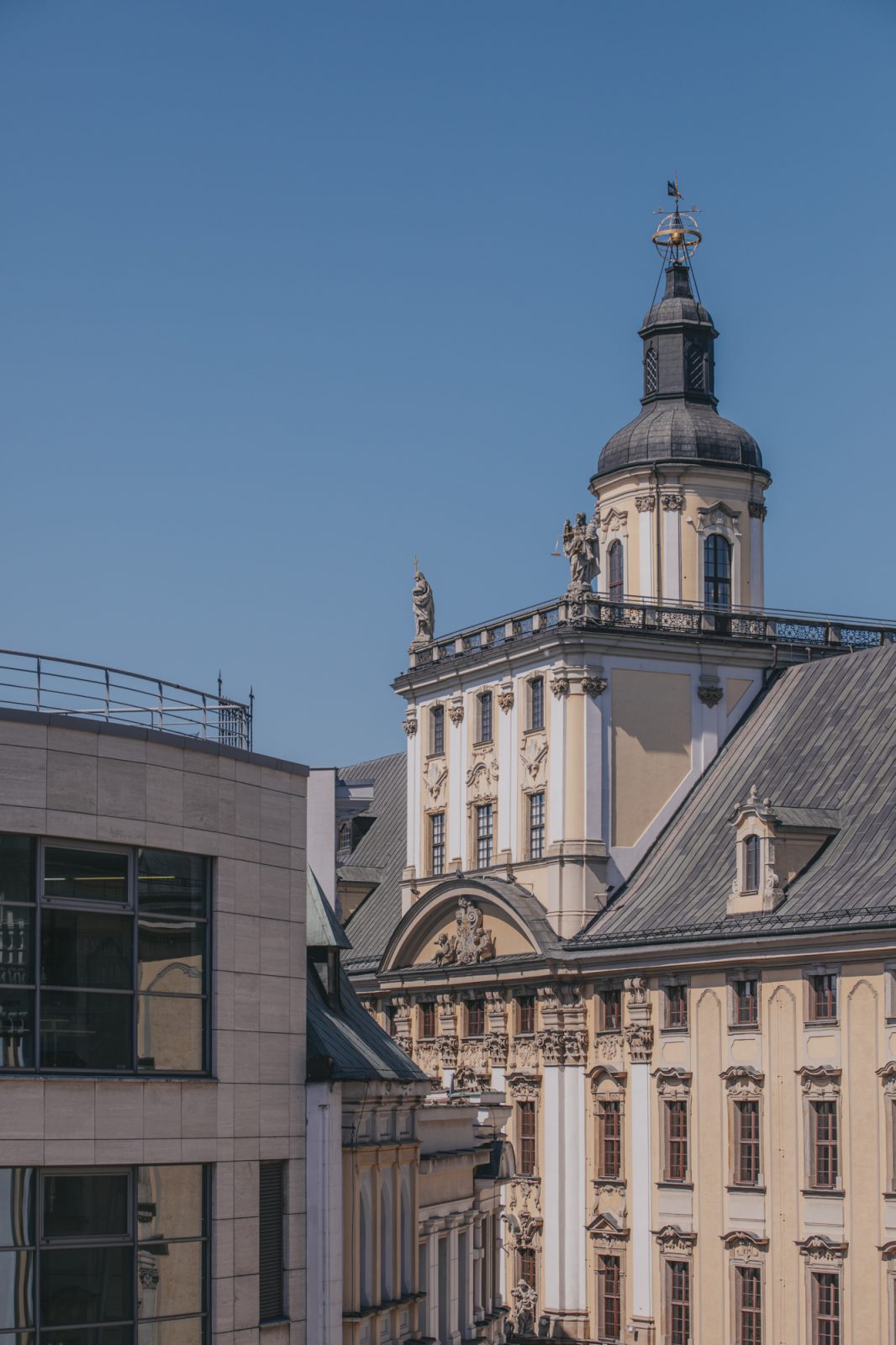
Forge of freedom
An exhibition titled “The forge of freedom – the history of the Faculty of Mathematics, Physics and Chemistry at the University of Wrocław in years 1946-1989″ continues at the University of Wrocław until June 24.
It is a story about the people of the Faculty of Mathematics, Physics and Chemistry (MatPhysChem -MatFizChem) at the University of Wrocław during the period of communist enslavement, about a steadfast, often heroic attitude of many employees and students, their involvement in various forms of opposition activity and their fate inscribed in the history of Poland.
The opening of the exhibition was held on Saturday, May 6, in the building of the Institute of Computer Science at ul. Frederic Joliot-Curie 15.
- Governor of Lower Silesia Jarosław Obremski (chemistry graduate, MatPhysChem University of Wrocław),
- Rector of the University of Wrocław, prof. Robert Olkiewicz (physics graduate, MatPhysChem University of Wrocław)
- Prof. Tomasz Jurdziński, dean of the Faculty of Mathematics and Computer Science
- Piotr Krukowski, curator of the exhibition (graduate in computer science, MatPhysChem University of Wrocław, leading a team of several MatPhysChem University of Wrocław graduate students who prepared the exhibition).
The exhibition, consisting of 18 panels, presents the involvement of the Faculty of Mathematics, Physics and Chemistry employees and students in the struggle for a free, independent Poland. Starting in May 1946, when school and university students in Wrocław, rising from the rubble, took part in demonstrations marking the anniversary of the Constitution of 3 May 1791 and later in solidarity strikes with arrested students from Krakow.
The activities of the department’s students and employees were naturally intertwined with the events in the country then and in the following years that are marked by the dates of June and October 1956, March 1968, June 1976 and May 1977, when the Student Solidarity Committee was formed. Through various other forms of pre-August opposition activity, to the Solidarity carnival and the period of martial law and the years after, until the breakthrough in 1989. Many MatPchysChem employees and students have written glorious pages of history; the list of their names included in the exhibition is long but probably incomplete. As well as the list of names of those who suffered repression: internment, detention, trials and imprisonment. Many of the heroes of those years found their way after 1989 into politics, local government activity and the media.
The opening was attended by about 70 people, mostly graduates of the Faculties of Mathematics, Physics and Chemistry. Among the invited guests were and spoke at the discussion:
- Wojciech Hann, chairman of the Council of the University of Wrocław, physics graduate, Faculty of Mathematics, Physics and Chemistry (MatPhysChem),
- prof. Tomasz Jurdziński, dean of the Faculty of Mathematics and Computer Science at the University of Wrocław,
- dr Adolf Juzwenko, historian, former director of the Ossoliński National Institute,
- prof. Leszek Pacholski, former rector University of Wrocław, Faculty of Mathematics, Physics and Chemistry (MatPhysChem),
- prof. Jan Sobczyk, former rector University of Wrocław, Faculty of Mathematics, Physics and Chemistry (MatPhysChem),
- prof. Michal Tomczak, director of the Institute of Astronomy of the University of Wrocław.
The opening was attended, among others, by the daughters of dr Kornel Morawiecki a physics graduate of the Faculties of Mathematics, Physics and Chemistry (MatPhysChem) of the University of Wrocław, as well as many participants in the events described by the exhibition.
The exhibition will be displayed in the following buildings of the University of Wroclaw:
- Institute of Computer Science, ul. Fryderyka Joliot-Curie 15, from 6 V to 20 V 2023.
- Institute of Mathematics, pl. Grunwaldzki 2, from 22 V to 26 V 2023.
- Faculty of Chemistry, ul. Fryderyka Joliot-Curie 14, from 29 V to 9 V 2023.
- Faculty of Physics and Astronomy, pl. Maxa Borna 9, from 12 VI to 24 VI 2023.
Translated by Karolina Konopska (student of English Studies at the University of Wrocław) as part of the translation practice.



